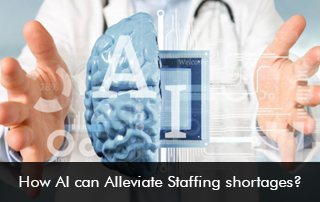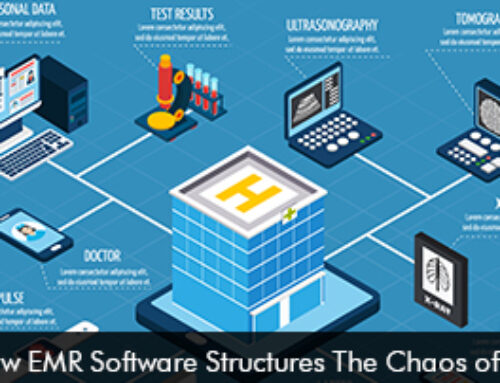In the aftermath of the COVID-19 pandemic, many talented professionals have quit their jobs. The healthcare industry was hit hard, according to the Forbes report the healthcare sector lost 30% of nurses.
Physician burnout and staffing shortages
Clinician burnout is a grave issue faced by healthcare providers in the US. They have long working hours, and experience a work-life imbalance leading to provider dissatisfaction and complete burnout. In the year 2022 alone, almost 1.7 million people have quit their healthcare jobs according to the U.S. Bureau of Labor Statistics.
A recent survey comprising 1000 healthcare professionals revealed that 28% quit their existing jobs because of physician burnout leading to staffing shortages.
The healthcare sector, like much of other industries, is facing a labor shortage. Fortunately, Artificial Intelligence (AI) technology can play a vital role to lighten the workload of providers and help address staffing shortages in healthcare.
AI to combat staffing shortages
Technological advancements in healthcare have revolutionized the patient diagnosis and, treatment process improving health outcome levels. Artificial intelligence can help in several areas with efficiency. Healthcare organizations can deploy AI solutions to streamline routine processes, freeing providers to focus on patient care.
Patient management automation
Artificial intelligence technology has enabled real automation in hospitals to boost efficiency levels and even reduce costs. Automating cumbersome administrative tasks with AI-powered solutions can free staff to invest their time in high-value work. AI is a valuable tool in medical records automation, such as AI-aided documentation for regulations and reimbursements, and chatbots used to communicate effectively with patients when nurses are busy.
Triaging patients
AI solutions are valuable to support healthcare in triaging patients and help avoid under and over-triaging of patients. Triage machine learning tools can be leveraged to enhance risk assessment and help with the categorization of patients.
AI in EHRs
Electronic Medical Records (EMR) Software solutions can be improved with artificial intelligence technology. AI-powered EHR solutions seamlessly integrate and offer robust functionalities for providers. Machine learning and NLP can be used for the effective extraction of data, simplifying clinical documentation, and offering decision support.
AI has great potential in healthcare to improve the patient care process and ease staffing shortages. By leveraging AI in hospital settings clinicians can become efficient and transform the way they diagnose, treat, and monitor patients.







